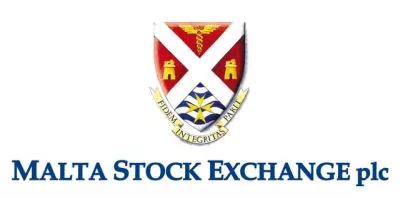Despite the recent international economic crises and difficulties encountered in the financial sectors, the Malta Stock Exchange can attest to its successful performance on the strength of its sustained and efficient trading statistics and the level of confidence in the market.
The three main functions of the Exchange are Admissions to Listing, Trading, and Depository Services. Essentially, the MSE provides a regulated structure for admission of financial instruments to its recognised lists, which may subsequently be traded on its transparent and orderly secondary market place, as well as ensures a smooth and secure clearing and settlement mechanism.
The MSE currently has equities, corporate and government bonds, and treasury bills listed and traded on the market, but new products and market structures are being studied for eventual introduction to the market. Additionally, the Central Securities Depository offers a comprehensive range of services to the 72,000+ investors, as well as to the listed and unlisted companies, including maintenance of share and bond registers in a dematerialised environment, handling corporate actions, clearing and settlement and custodial services.
In spite of the fact that MSE services a relatively small domestic market, the figures show that the MSE has had a significant impact on the local economy; the Exchange has processed the issue of over €15 billion worth of financial instruments that have been sold predominantly to the domestic market. Furthermore, the Exchange registers an annual turnover of over €500 million in the trade of financial instruments on its Xetra platform, and as at the end of October 2012, has already exceeded the total turnover registered for all of 2011 by an impressive 14%. The current market capitalisation of listed instruments stands at over €8.5 billion, not including funds, but which includes virtually all Malta's sovereign debt.
There is scope to attract further listings from the local business environment, even though this business segment is predominantly family owned and run - these companies would need to ensure that they are fully prepared for the consequences of listing before they can enjoy the benefits that opening their business to the public will create. These benefits include succession planning, liquidity for current shareholders and the increased brand awareness, to name a few.
Unbundling strategy
The Exchange is developing a specialist niche that will give it a competitive advantage, by promoting itself on the strength of a robust regulatory framework, Malta's excellent reputation and EU passport ability, accessibility, speed of service and overall cost-effectiveness. Its services, and particularly their promotion, have been 'un-bundled', so that companies seeking a reputable listing venue within the EU, with full EU passportability, can do so without having to take up the trading or the depository services options, even though they would be most welcome to do so. Recently, various listed and even unlisted local and foreign companies have expressed a keen interest in our depository and custodial services, partly because of our international connectivity. Indeed, the international networking opportunities created as a direct consequence of the new Xetra trading platform and the Clearstream link in respect of our custodial depository services, are critical to the successful attraction of international business for the benefit of the Exchange and of course the rest of Malta's financial services sector. As a result of this 'un-bundling' strategy, potential customers can cherry pick the specialised services they need, which are in line with EU quality and professional standards but come at a fraction of what mainland EU would cost.
Of course, awareness is always an issue for a domicile the size of Malta, and the MSE is in the process of developing the MSE brand awareness internationally, whilst networking with partners in the financial services sector in order to better identify the opportunities that exist and to attract these to Malta, for the benefit of all related support services providers.
The content of this article is intended to provide a general guide to the subject matter. Specialist advice should be sought about your specific circumstances.


